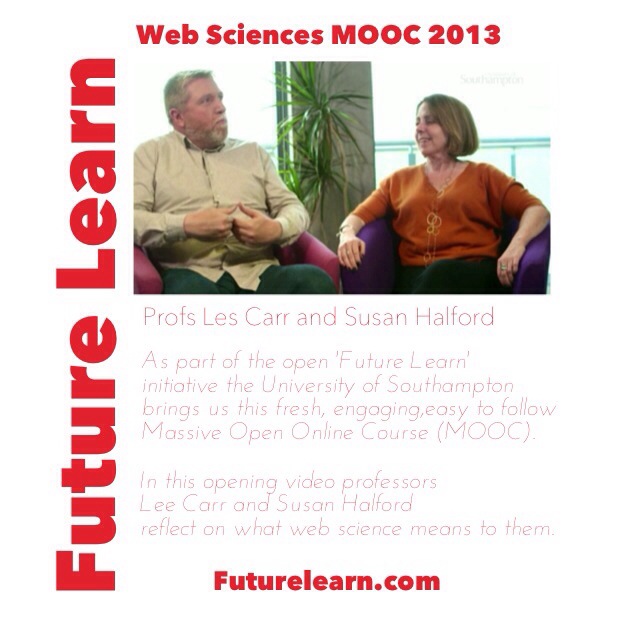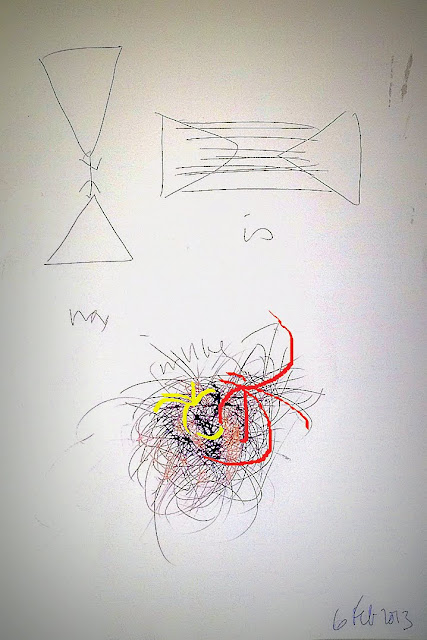Home » Posts tagged 'Southampton'
Tag Archives: Southampton
Factors that led to the creation of the Web
A neurobiologist would argue that all manifestations of human inventiveness stem from our ability to think in metaphors and therefore to be able to see beyond our current reality. The authors and thinkers who have imagined and tried to create a library of everything, an index of everything, a microfiche or computer of evrything are many: H G Wells and Douglas Adam, Vanevar Bush, Thomas Bodley …. Regarding the issue of the origins or history of the Web’s inception it is a complex and massive human story, indeed, like the roots of a growing tree as a mirror to what is going on above the ground, it has the potential to fill many volumes and to occupy many minds. Perspective is everything – education, culture, personal experience, personality and academic discipline – each would offer a different perspective. Pressing on with a biological metaphor perhaps like the origins of life on earth we can nonetheless start from a specific moment – the equivalent of those first cells that began to split and evolve?
Web Sciences – faster, rich, responsive, shared …
Life happened at the opening of the MOOC on Web Sciences from the University of Southampton (SOTON) – the imminent arrival of a great-grand child is announced while two in their late 80s make their departures, one with little warning, the other with a reluctant move to hospital.
Born in 1928 or to be born in 2014 …
Keen as I am on ancestry I try to reflect on what has and is changing.
How great in truth is or will be the impact on how we live, love and die? Of course the frenetic, massive Web impacts on the neuronal activity in individual brains feeding us with knowledge, news, information and misinformation like never before, but how much does it change the intimacy of a family, of childhood and education, of working and falling in love, of starting a family of your own (or not) and beyond?
The Web, like a strange digital mist now surrounds us – but in the Darwinian sense does it change anything at all?
Words of a distraught young woman from the Philippines coming out of the recent typhoon smack you in your digital face when she starts with ‘no Internet, not smart phone, no food, no water, no roof on our heads, no medicine … ‘ We will surely reflect on that fact that for all the opportunities the Web it is exclusive and fickle.
Yet it is the speed and ease by which this information is disseminated that changes things. I remember the Japanese Typhoon that I watched on multiple TV channels calling to my son who was watching the same online directly from people’s smart phones.
The new arrival mentioned above was posted on Facebook, the ‘departure’ was a call to a mobile phone. Both will feature online to welcome to the world or to reflect on a long life and commiserate.
Related articles
- The University of Southampton’s Web Science Institute (amandabobel.wordpress.com)
- UK unis prepare to launch ‘moocs’ this autumn (ool.co.uk)
- MOOC. Study Anywhere Anytime and for Free (johnijagbemi.wordpress.com)
- Amazing announcement!! Mooc makes Oxford online dictionary (opentopictest.wordpress.com)
- In Times Higher Education, on MOOCs (bryanalexander.org)
Web 1.0, Web 2.0, Web 3.0 – The way it was, the way it is, the way it will be.
Fig. 1. Way is will be …
- Way was
- Way is
- Way will be …
Web 1.0 Top down and traditional
Web 2.0 Democratization of information – anyone can publish
Web 3.0 The data takes over – construction and reconstructing itself to form unique and original combinations, even coming up with new ideas?
This is doodled on the back of a handout from the Web Science Doctoral Training Centre, University of Southampton where I had spent the afternoon on 6th February.
Serendipity really – the long train journey in and back and the iPad had run out of juice obliging me to do some reading. In any case, pen on paper is often the best place to express thoughts, to ‘get them out there’ in a scamp or draft form.
This is how Dion Hinchcliffe expresses it:
With a link to hundreds of his diagrams
Related articles
- Web2.0 (ericyounglee89.wordpress.com)




